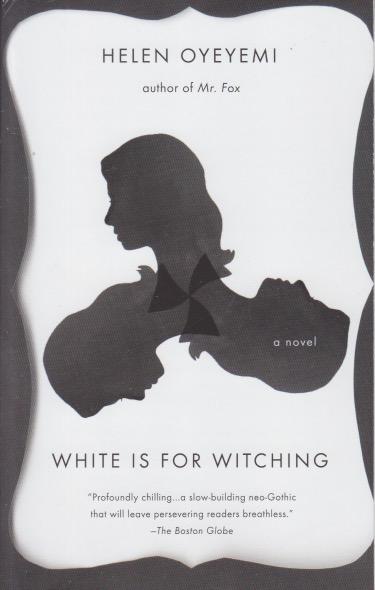
I can’t be sure I understood White Is for Witching, but Helen Oyeyemi’s novel grew on me once I started to piece together what was happening. A long sit in a waiting room finally got me hooked. This is an odd story that’s quite a bit about atmosphere. Miranda Silver and her twin brother Eliot, live in the Silver family house (through her deceased mother’s side) with their father. They run it as a bed and breakfast, but Miranda’s ill. She suffers from pica—a disorder where a person eats indigestible items rather than food. Her mother, who died young, and her mother, and grandmother, continue on in the house, but not as ghosts proper. They are more a controlling presence guiding the way for the lost daughter who, it seems, is destined to join them.
Miranda’s not an unreliable narrator because she’s never the narrator. Sometimes it’s her brother, other times it’s her girlfriend, and other times it’s the house itself. Oyeyemi’s writing is compelling, and she’s great when she takes the narrative thread and runs with it. The fault is entirely mine, of course, but I prefer a straightforward story where I’m not confused from the start. I recently put a book down because I was confounded about the issues raised. I’m flummoxed enough by life itself so that when I want to sit down and read I prefer something that makes sense. Or that I can follow. The novel has a wonderful gothic atmosphere and the tragic young woman definitely has shades of Poe.
My compulsion to read appropriate books in October led me to White Is for Witching. It’s set in England, however, and having lived in the United Kingdom for three years I know autumn there is not the same as fall in North America. That’s not the fault of the story, of course. The tale is textured and complex, exploring avenues of madness and isolation (it’s set in Dover and Cambridge). The part where Miranda falls in love with Ore, at college, becomes quite gripping. There’s some confusion as to why her twin brother acts as he does, with one of the narrators suggesting that he’s unreliable. There are speculative elements but no ghosts seen clearly. And race is obviously an issue. It’s not the central issue (beyond the author perhaps suggesting something by the title). There’s a lot going on here. Normally I don’t read synopses before reading fiction, but this is a case where that might be helpful before indulging in this moody, thoughtful tale.
